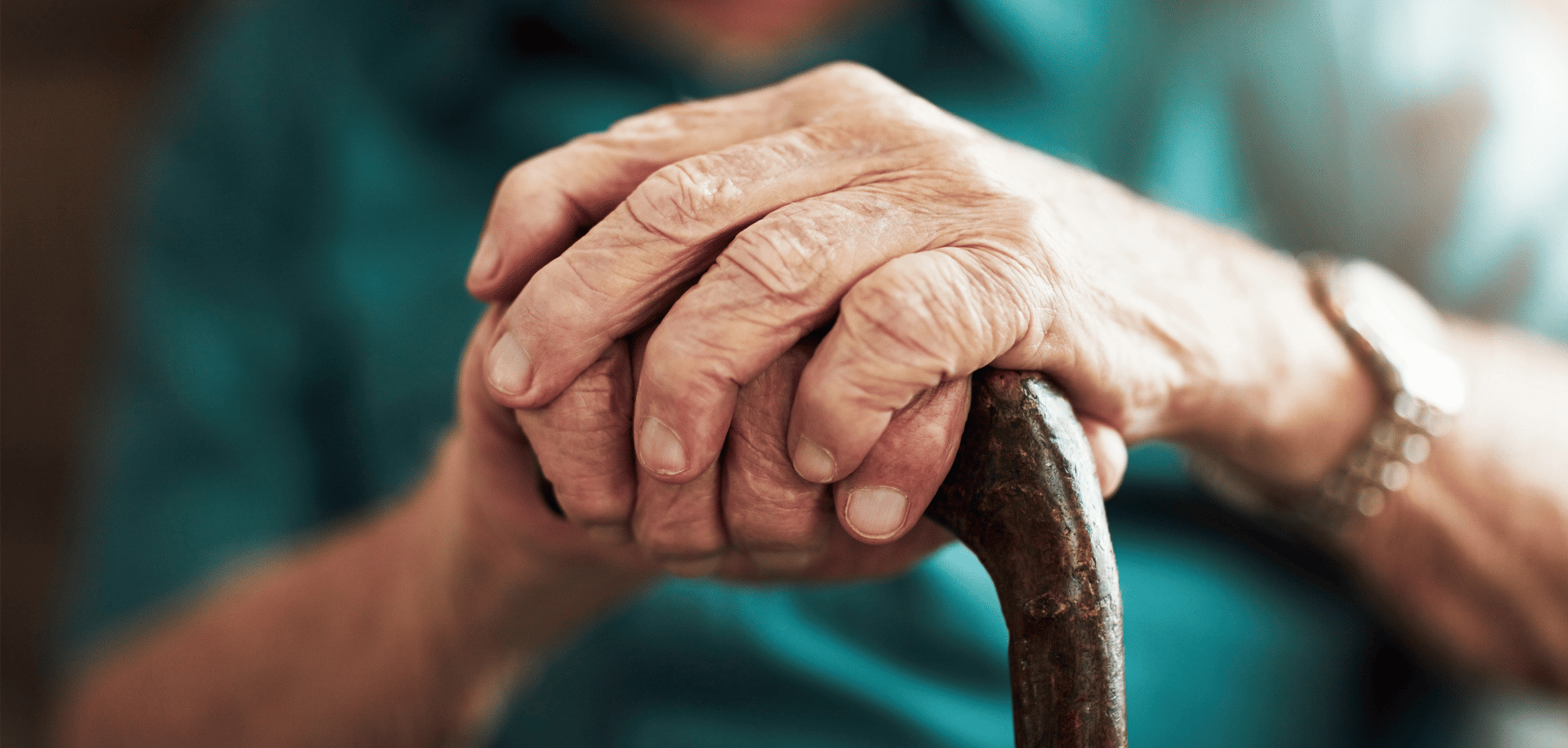
The nightly news often features stories about people who have done something uniquely terrible – planned or perpetrated a violent crime, committed widespread theft or fraud, or been involved in something else that rises far beyond what society can tolerate.
Every once in a while the person suspected of this crime will be someone who does not fit the stereotype we would expect. Reporters will visit the person’s neighbours to get a sound bite that inevitably reveals the person is “the last person I’d expect to do this,” or that “nothing seemed out of the ordinary.”
Once the shock wears off, however, the people who knew or observed the person might start to think of things that seemed a little bit “off” about them. Or perhaps they’ll remember encounters that seemed unremarkable at the time, but with the benefit of reflection and new information were likely clues to abnormal activity.
Many people who discover their loved ones have suffered from abuse or neglect in a long-term care home experience the same kind of painful realization. What initially appeared to be a safe, welcoming and friendly living environment turned out to be a place where a person they love sustained significant harm by the very people who were supposed to protect them.
In this blog, I review some of the signs of nursing home negligence you should never ignore. It is natural for people to want to give their loved one’s caregivers the benefit of the doubt – especially when they make an effort to show how diligently they work during your visits. We want to believe our loved ones are being treated well when they are not in our own care. But, investigating early warning signs of potential abuse, neglect or other negligence could prevent your loved one from prolonged suffering.
What is Nursing Home Negligence?
The Fixing Long-Term Care Homes Act establishes a duty for every licensee of a long-term care home to protect residents from abuse by anyone and to ensure that residents are not neglected by the licensee or staff. Moreover, every licensee must have a written policy to promote zero tolerance of abuse and neglect of residents and procedures to ensure the policy is complied with.
Negligence in a nursing home can include:
- Improper or incompetent treatment or care of a resident that results in potential harm or real harm to the resident.
- Physical, sexual, emotional, verbal or financial abuse of a resident by anyone or neglect (the failure to provide a resident with the treatment, care, services or assistance required for health, safety or well-being) of a resident by the licensee or staff that risks or causes harm to the resident.
- Any unlawful conduct that may have or does harm a resident.
- Intentionally or unintentionally creating an unreasonable risk of harm or injury to the resident that results in damages.
Unfortunately, elder abuse and neglect are alarmingly common in institutional settings. A 2017 meta analysis and systematic review of elder abuse prevalence studies in the Lancet Global Health journal found two out of every three staff members admitted to perpetrating some form of abuse in the past year. Research conducted since the onset of the COVID-19 pandemic suggests these staggering levels of abuse may have grown in the intervening years.
The most common forms of elder abuse reported by staff were psychological abuse (32.5%), neglect (12%), and physical abuse (9.3%). Among residents who reported elder abuse, psychological abuse (33.4%), physical abuse (14.1%), financial abuse (13.8%) and neglect (11.6%) were ranked highest.
Common Signs of Nursing Home Negligence.
The U.S. National Center on Elder Abuse lists the most frequently observed signs of mistreatment of older adults based on specific types of abuse or neglect they may have experienced. These include:
- Psychological Abuse – emotional agitation, social withdrawal, lack of self-care, depressive feelings, lower self-esteem and behaviours often believed to be related to dementia (biting, rocking, sucking)
- Physical Abuse – bruises, fractures, untreated open wounds, abnormal marks on skin, falls, restraint marks, overmedication or sudden changes in behaviour
- Financial Abuse – sudden or unexplained changes in banking practices or estate matters, disappearance of valuables, depression or anxiety
- Sexual Abuse – genital trauma, unexplained sexually transmitted infections, anxiety or depression, sleep disturbances, restlessness
- Neglect – dehydration, malnutrition, untreated bed sores/ulcers, poor hygiene, untreated health problems, unsafe or unsanitary living conditions
But when older adults are in institutional care settings, signs of abuse or neglect may be more difficult to discern – especially if you are not able to visit your loved one in person regularly.
In my experience, certain signs should be considered red flags that warrant further investigation.
Injuries on body parts normally hidden from view
Privacy and dignity are important for all people and older adults may not like the idea that a visitor, even if it is a close relative or loved one, would want to examine their body. However, injuries or evidence of neglect are often concealed by clothes or bed sheets. Take notice, whenever possible, of parts of the body you wouldn’t normally see during a routine visit.
Unusual smells
Contrary to popular belief, older people do not smell – at least if they are adequately cared for. An unpleasant smell in the room or a resident’s bad breath from poor oral hygiene may be evidence of neglect.
High staff turnover
Nurses and personal support workers in long-term care homes have difficult jobs and burnout is common. Unfortunately, studies on staff-reported abuse of patients suggests incidents of abuse were most common when a staff member was suffering from burnout or planning to quit. Frequent changes in support staff may indicate job dissatisfaction and psychological stressors that could increase the risk of abusive behaviour.
What Steps Can I Take to Prevent Nursing Home Negligence?
If you suspect your loved one may be at risk of experiencing abuse, neglect or another form of nursing home negligence, there are several things you can do to discover if your suspicions are correct:
- Be proactive – Speak with your loved one if they are able to communicate. If they appear to be afraid or ashamed to answer direct questions about mistreatment, use indirect questions to gain more information about their care. Speak with the loved ones of other residents if possible to determine if they have had similar concerns. Raise the issue with staff earlier rather than later. Ask the nurse on the floor why your loved one’s teeth have not been brushed or why bedsores have developed. Any unexplained injuries or bruising should be brought up in writing to management immediately.
- Consider surveillance – If your loved one provides consent, or if you are the substitute decision maker if they do not have the capacity to make decisions, you can install video surveillance (without audio recording capability) in their rooms to observe their treatment. If you are unable to visit your loved one in person frequently, you may think about hiring a personal support worker (PSW) or trusted friend to visit them once a week. They can be your eyes and ears when you are not present. Zoom calls with your loved one may help with surveillance, but they can also be confusing for some people with dementia.
- Complaints and lawsuits – When you have reason to believe your loved one is being mistreated and the facility management is not addressing your concerns adequately, a formal complaint to the patient Ombuds or Ministry of Long-Term Care is in order. If your loved one has been significantly harmed by mistreatment (psychologically and/or physically), a civil lawsuit may be an option. Your complaint and legal actions may not only prevent your loved one from continuing to experience abuse, neglect or negligence, but it may prevent other residents from suffering similar treatment.
Contact Our Nursing Home Negligence Lawyers for Legal Help Today
No one should have to accept being mistreated in their own home – whether it’s a private residence or a nursing home. Although the effects of abuse and neglect can be severe, taking action against the perpetrators can give you and your loved one a sense of justice that can greatly aid recovery.
Choosing a trusted legal advocate to support you on this journey is an important step forward. At Howie Sacks and Henry LLP, “Hope Starts Here.” As a nursing home negligence lawyer, I draw on my own experience caring for a loved one who experienced maltreatment in a long-term care facility to inspire my practice and my drive to get results for my clients.
If you believe you need legal advice or assistance on a nursing home negligence matter, contact me for a free consultation.






